The impact of Neoechinorhynchus buttnerae (Golvan, 1956) (Eoacanthocephala: Neochinorhynchidae) outbreaks on productive and economic performance of the tambaqui Colossoma macropomum (Cuvier, 1818), reared in ponds
DOI: https://doi.org/10.3856/vol45-issue2-fulltext-25
Abstract
This study evaluates the impact of Neoechinorhynchus buttnerae on the productive and economic performance of “tambaqui” reared in ponds. Two fish farms were selected, one with infected fish (IF) and the other with non-infected fish (NIF). Biometry, age, initial weight and handling data were collected from each studied specimen. Our results show that IF presented lower weight, evident loss of body mass and body deformities, reflecting on a condition factor 300% smaller than NIF. Infection by acanthocephalans caused an impact bigger than 200% on growth and affected the gross income directly, resulting in a difference higher than 1000% between IF and NIF farms. We conclude that this impact could be even greater if we consider both income decrease and raising production costs due to the parasite infection.


